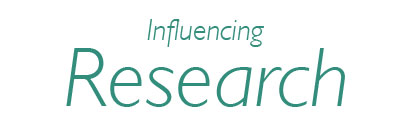|
Quick Links
• US Natural History Study opens - (Jan 2014)
• US Natural History Study - Pittsburgh, PA (started 2008).
• FAQ:
- What is a Natural History Study?
- What Are the Risks and Concerns of Participating?
- Why Should My Loved One Participate?
- etc.
• Comments From MLD Foundation
A meeting was held in Washington DC in June of 2014 to discuss MLD Foundation's openNHS Manifesto (OPEN Natural History Study). We are pleased to report that the meeting of industry, researchers, academia, and MLD Foundation was a success and was very responsive to the issues identified in the Manifesto.
We are also pleased to report that some aspects of the current Natural History Study were modified based on feedback we presented don your behalf. We are recommending participation in the current Natural History study to support increasing knowledge about MLD. Please see the "Comments By MLD Foundation" section further down this page for more of how we are advocating for patient rights while facilitating more efficient and patient-centric research.
Natural History Study - updates (April 2015)
The study parameters have been adjusted in the description below (April'14). Several adjustments were made to reduce some of the testing that was identified as a concern to parents ... notably the MRI (sedation) and CSF/spinal tap were removed.
Families are encouraged to participate in the Natural History Study where practical. We have been told that some travel funds may be available to defer the costs for those families not central to a study center.
Natural History Study - now recruiting (January 2014)
A natural history study targeting 30 late-infantile patients is opened January 2014 and is actively recruiting in multiple study sites around the globe (see below).
This is a 2 year study with periodic assessments during the study. The primary endpoint of this study is the change from baseline in motor function using the GMFM (Gross Motor Function Classification assessment). Secondary observations include studying swallowing, nerve conduction, and other studies of functioning, cognition, and adaptive behavior. Participants will be genotyped for their specific mutations via a blood sample. A urine sample will also be taken. Inclusion Criteria:
- Confirmed diagnosis of metachromatic leukodystrophy (by both blood enzyme & urinary sulfatide levels) before age 31 months
- Under 12 years of age at time of enrollment
- GMFM-88 total (percent) score greater than or equal to 40 at the screening examination.
- Complete criteria at ClinicalTrials link below
Exclusion Criteria:
- History of hematopoietic stem cell transplantation
- Known or suspected hypersensitivity to agents used for anesthesia or high risk for associated potential complications
- Enrolled in another clinical study that involves clinical investigations or use of any investigational product (drug or device) within 30 days prior to enrollment in this study or at any time during the study.
- Patient is 12 years of age or older.
- Complete criteria at ClinicalTrials link below
SITES – Washington, DC site opened for recruiting January 2014. Los Angeles opened February 2014. Chicago has also opened. Other study sites are anticipated. (see below for contact information)
RISKS/PAIN – This study involves a nerve conduction study. Please see the note below about potential risks/pain associated with this study.
ELIGIBILITY or STUDY QUESTIONS –Please see the note below about anesthesia. Please feel free to email us or phone MLD Foundation to ask questions about this study and your loved one's eligibility to participate. We are happy to help you engage with the study coordinators.
GLOABL TRIAL SITES – US study locations include Washington DC, Los Angeles, Chicago, and Pittsburgh. Planned global sites include Buenos Aires, Antwerp, Porto Alegre (Brazil), Montreal,
Bogota, Copenhagen, Paris,
Tubingen,
Tel Aviv, Osaka,
Tokyo,
and Ankara (Turkey). See this link for a complete list of sites and contacts.
Travel support may be available. In the United States please consider the Pittsburgh site as a location where the investigator will combine a complete day-long clinical visit with the study and provide you with disease specific advice about improving your loved one's quality of life and clinical care.
CLINICALTRIALS.GOV
– Trial ID NCT01963650
US Natural History Study – Pittsburgh (2012)
A natural history study primarily targeting late-infantile patients is now closed (1/14).
This is a 2 year study with periodic assessments during and after the study. The primary endpoint of this study is changes from baseline in Neurodevelopmental tests with audiology and MRI being studied as secondary outcomes. Genetic and biochemical testing is part of this study.
Inclusion Criteria:
- Confirmed diagnosis of metachromatic leukodystrophy (by both blood enzyme & urinary sulfatide levels)
- Under 6 years of age at time of enrollment, with symptom onset prior to age 4.
- Patient must have voluntary function (as judged by the investigator), including cognitive and motor function that is no more than 3 standard deviations below normal at the time of enrollment.
- Complete criteria at ClinicalTrials link below
Exclusion Criteria:
- History of hematopoietic stem cell transplantation
- multiple sulfatase deficiency
- Enrolled in another clinical study that involves clinical investigations or use of any investigational product (drug or device) within 30 days prior to enrollment in this study or at any time during the study.
- Patient is 6 years of age or older.
- Complete criteria at ClinicalTrials link below
SITES – University of Pittsburgh, Pittsburgh Pennsylvania USA. No other study sites are anticipated.
RISKS/PAIN – This study involves anesthesia for MRI and a lumbar puncture/spinal tap.
IMPORTANT ==> Please see the note below about anesthesia and the risks/pain associated with the additional studies.
ELIGIBILITY or STUDY QUESTIONS –Please see the note below about anesthesia. Please feel free to email us or phone MLD Foundation to ask questions about this study and your loved one's eligibility to participate. We are happy to help you engage with the study coordinators.
TRIAL CONTACT – Sarah Evans, BA 412-692-6350 sarah.evans@chp.edu or Tara West, CPNP (412) 692-6352 tara.west@chp.edu – University of Pittsburgh, Children's Hospital of Pittsburgh - UPM, Pittsburgh, Pennsylvania, USA.
Principal Investigator – Maria L Escolar, MD University of Pittsburgh, Children's Hospital of Pittsburgh - UPM, Pittsburgh, Pennsylvania, USA.
ClinicalTrials.gov – Trial ID NCT00639132
HISTORY: Originally launched in 2008 by Zymenex, taken over by Shire HGT in 2009, UNC Chapel Hill in 2010, and then by Program for the Study of Neurodevelopment in Rare Disorders at the University of Pittsburgh on 11/9/2012 where the inclusion age was expanded from <5 years old to <6 years old and recruiting was temporarily halted. In July of 2013 recruiting was re-opened and they started collecting DNA samples.
FAQ - Questions About Natural History Studies
NHS = Natural History Study
What is a Natural History Study?
A NHS is a study of patients who have not had any disease modifying therapies to see the "natural" progression of the disease. These studies are important to better understand the disease and to provide a baseline by which disease modifying therapies can be compared.
What Is Required?
Your loved one must meet the inclusion/exclusion criteria and you must be willing to participate in the periodic assessments throughout the study to capture the disease progression. Typically, all medical expenses related to the study are paid, but travel and lodging may not be covered - check the study details to be sure.
Will My Loved One Benefit From Participating?
Generally there is no direct quality of life or medical benefit since a NHS is observational, not a therapy. However, in some cases depending on the study center you choose and the staff at that center, participating in a NHS may give you direct access to disease experts that you might not otherwise be able to access. This might result in practical clinical care advice and guidance that could improve your loved one's quality of life.
Will It Hurt? What Are the Risks?
All Natural History studies are slightly different and can contain different tests. When reviewing the following please review the specific study description for what tests are included in that particular study.
A MRI (magnetic resonance imaging) can observe changes in the brain over time. MRI's typically involve a general anesthesia to relax the patient and help them hold still. Please see the comments below about reported risks and recommendations for anesthesia.
Some studies require a spinal tap (lumbar puncture) to study the cerebrospinal fluid (CSF). There may be some minor pain, some risk of infection, and a post-puncture headache associated with the procedure. There are no long term side effects.
Studies may also include a muscle biopsy. A muscle biopsy involves using a needle or a small incision to remove a small amount of muscle tissue under a local anesthetic. A local short acting anesthetic is generally fine but we still recommend as low a dose as practical. There can be some temporary localized pain from a biopsy. There are no long term side effects.
A nerve conduction study uses electrical stimulus to measure how quickly the signal travels down a MLD-damaged nerve. There can be some temporary localized pain from a nerve conduction study - anesthesia is not generally used with nerve conduction studies. There are no long term side effects.
Most of the other studies are behavioral or observational and do not have any notable risks or pain.
ANETHESIA – Reported Risks and Recommendations <== IMPORTANT
For all anesthesia we recommend as low a dose of as fast acting an anesthetic for as short a period of time as possible.
We do not hear reports of problems from local anesthesias, such as used for a biopsies or to place a G-tube.
However, anecdotal reports from some families report symptom progression after general anesthesia. As a result, we suggest as low a dose of as fast acting an anesthetic for as short a period as possible. We strongly suggest you avoid gas anesthesia and instead recommend a short acting IV form instead. Your anesthesiologist may not have seen a MLD patient before so it is important to communicate with him/her several days before the procedure to discuss and perhaps influence their plans. Families report success suggesting a technique similar to what might used for a MS or brain injury patient.
As always, we must remind you that we are not doctors and are not dispensing medical advice. Always consult your local medical care team before making any procedure or therapy decisions.
Why Should My Loved One Participate?
Participating in a NHS helps researchers develop therapies. Without these studies the disease would be less well understood and it would be more difficult to draw scientific conclusions about the effectiveness of a proposed therapy. The FDA and EMA require this scientific analysis to approve new therapies so NHS are generally required of every disease as therapies are developed.
Comments By MLD Foundation on Natural History Studies
We recommend patients only participate in medical studies only after knowing the study is both collaborative and there is future open access to the study data for other researchers. Properly designed studies will protect your privacy while facilitating longevity in MLD research.
There have historically been Natural History Studies involving extensive patient effort where the data was used for one study, siloed (isolated), and not made openly available for future researchers. We have also seen situations where the method of data gathering, the scope of the data gathered, or the patient consents given when the study was started precluded the use of the data for other research projects.
We're speaking out and advocating that these sort of wasteful and proprietary uses of the MLD patient community cease.
Supportive of Studies
MLD Foundation is fully supportive of Natural History Studies and recognizes the need for these studies to
better understand, characterize, and treat the disease. Further, we realize the scientific requirements for FDA/EMA approval of clinical trials and new therapies requires a baseline of untreated progression to compare the therapies to and to establish research end points.
We also fully realize these studies can be painful and might carry some medical risk so the commitment of MLD families to participate should not be taken lightly.
It is because of this pain and risk we want to make sure these studies are conducted in ways that are collaborative, as comprehensive as possible, and the data is captured, stored, and shared in a manner that allows the data to be openly used in future research.
Longevity, Sharing, and Use of NHS Data –
Since gathering NHS data requires significant time, funding, effort by families, and carry the potential for pain with some disease progression risk, MLD Foundation feels very strongly the raw and analyzed data be made available to all future researchers. We respect the study funder may want exclusive or prioritized rights to the data ... but these desires can be honored in a way that meets their short term goals, enables future research, and is respectful to the MLD patient community . We not only request that NHS data be made available, we are vocal advocates to this end, and we are willing to provide resources to continue to make the data available to future researchers after the funding organization(s) usually shorter-term interests are achieved. Sometimes there are IP or proprietary data concerns that must be addressed – we will work hard to resolve these concerns in a manner that is fair to the funding organizations(s) and the MLD patient community.
Registries & Data Repositories – In December 2013 MLD Foundation was selected as one of 10 advocacy organizations to benefit from a $1M PCORI grant to launch a disease registry that will form the basis for a patient driven advocacy organization managed independent registry serving all researchers in all countries for future projects. We are building this registry in a way that is sustainable, expandable, honors patient privacy, has extensive data use consent capabilities, and can host a mix of patient reported, scientifically gathered, medical health record, and researcher contributed data.
We are putting our efforts and funds into this project to advance, expedite, and hopefully cost reduce future therapy development.
|




